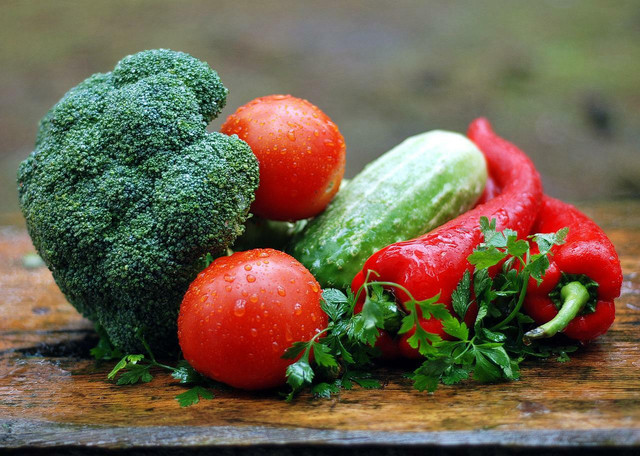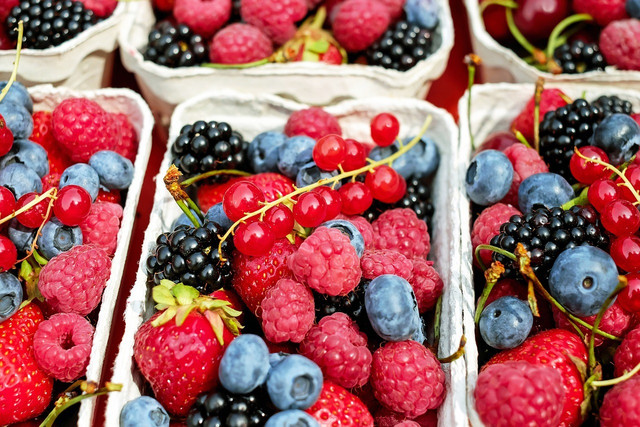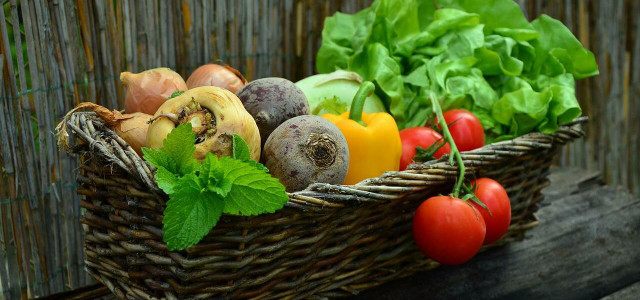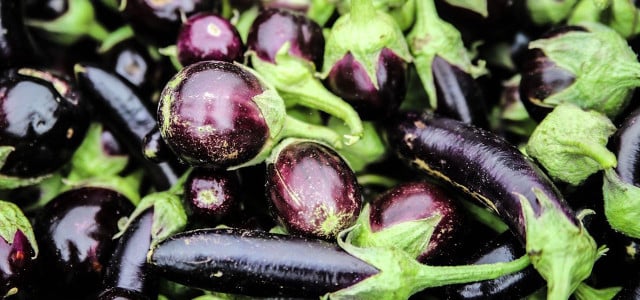If you’re wondering how to keep fruit and vegetables fresh for longer, look no further. Here are some tips for avoiding food waste and storing your produce sustainably.
Proper storage of fresh produce will reduce food waste and keep your household budget healthy at the same time. Correctly storing your produce also ensures that your foodstuffs don’t lose vital vitamins and minerals, so you get the optimal nutritional benefits from them. A focus on buying locally and seasonally will enhance your efforts to live and eat more sustainably.
Since different fruits and vegetables lend themselves to different types of storage techniques, it can be confusing how to approach this household problem. If in doubt, go with the same storage method you see at the grocery store. That, along with the tops below, can teach you how to keep fruit and vegetables fresh for longer, prolonging the shelf life of your food.
Tips For Storing Fresh Produce Properly

(Foto: CC0 / Pixabay / JerzyGorecki)
The best technique for storing food really depends on the item itself. Some produce requires refrigeration, while others do best in the cupboard. Here are some helpful rules of thumb to get you started.
Dry or Dehydrate Before Storing
Keep this tip in mind for fresh herbs and spices as well as onions, tomatoes, spring onions and fruits such as grapes, apples and apricots. Depending on the item you want to dry, you may want to use a food dehydrator to help avoid further food waste or even food-related illnesses.
Sealable Containers
Sealable, reusable containers are more sustainable and reduce your household’s plastic waste. Rather than plastic bags, sealable containers prevent mold from developing and seal in freshness for longer. They also reduce the chance of nasty bacteria on your fruit or vegetables. and
Freeze Fresh Herbs
Take your fresh herbs and freeze them so you can have them on hand for months and use them at your leisure. You can avoid freezer burn by dressing them in a little olive oil before freezing.
Buy Unripened Produce
Unripened fruit and vegetables are frequently overlooked in the shopping aisle. Keep in mind that if you buy it, you can store it at home without needing a fridge as you allow it to ripen in time.
Ripened Produce In The Fridge
After keeping unripened produce outside the fridge, ripened fruit and vegetables need to be kept inside to prolong their shelf life and reduce the chances of spoiling before use.
Freeze Produce For Later Use
A surprising amount of fresh fruit, vegetables, and herbs can be stored for a long time in the freezer. Whether broccoli and peas or pineapple and berries, each food item needs to be treated a little differently before frozen storage. A good rule of thumb is to make sure you have the right freezer storage containers; if in doubt, leave it out to avoid unnecessary food waste.



(Foto: CC0 / Pixabay / 1195798)
Buy As You Need
This should be the basic principle when undertaking any shopping, especially when it comes to fresh produce. Just plan ahead a little, being aware of what meals you might be making in the coming days and ensure that you buy only what you need for those meals and avoiding any food from going to waste.
Throw Away Spoiled Food
If you spot any rotten or moldy fruits and vegetables in the fridge, throw them into your compost if you have that at home, or just throw them in the trash immediately. Rotting fruit or vegetables will spoil the rest of those you have stored along with them, so it is better to throw away one or two rotten food items, rather than watching a whole fridge full of fruit and vegetables spoil completely.
Newspaper Wrap
Vegetables like avocado make for exotic dishes, but sometimes don’t ripen. “Wrapping in a newspaper and storing at room temperature is a good way to ensure that avocado ripens. It is terrible that after buying this expensive vegetable, it does not ripen.
Some Extra Tips for Storing Your Fruits and Vegetables
- Store In Cool Dry Place Out Of Direct Sunlight
This is ideal for potatoes onions and garlic. Storing these items in clean trays or baskets will also aid in circulation and stop mold from growing.
- Store Citrus On the Kitchen Counter
Oranges, limes and lemons will last for at least a week when stored on your kitchen table or counter. You wont need to store them in the fridge immediately.
- Tin Foil Wrapping
Not every piece of green fresh produce lends itself to container storage, unless you want to chop them up to fit. Instead, you might want to wrap things like celery in aluminum foil and keep them fresher for longer.
- Separate Ethylene Producing Fruits and Vegetables From the Rest
You might not have known that certain types of fruit and vegetable will release a natural gas called ethylene as they start to ripen. If exposed to other fresh produce, this gas can cause them to start to ripen prematurely. Keeping your ethylene-producing foods away from those foods which are sensitive to this gas will help you avoid waste. Produce such as avocados, mangoes, kiwifruit, bananas, pears and tomatoes all release ethylene as they ripen, so keep these separate from your leafy greens, apples, broccoli, carrots or watermelon.
Read more:
- How Long Do Farm Fresh Eggs Last? And How Can You Tell?
- Storing Potatoes: 8 Tips to Keep Them Fresh for Months
- Washing Strawberries with Vinegar to Keep them Fresh Longer
Do you like this post?







